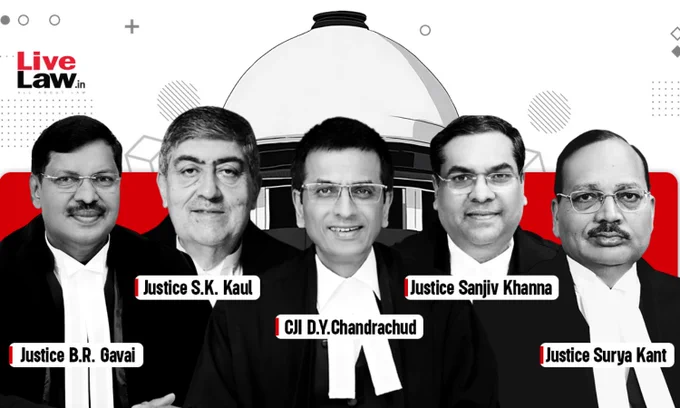Supreme Court on Tuesday, Sept 5, 2023 reserved its judgement on a batch of petitions filed in a long-pending case challenging the Centre's decision to abrogate Article 370 of the Constitution that gave a special status to the erstwhile state of Jammu and Kashmir.
The petitioners also challenged the J&K Re-organisation Act which was utilised to bifurcate the state into two Union territories.
The hearing started on August 2 and over the period of 16 days, the apex court witnessed extensive arguments and discussions on the case from both sides.
The counsels from petitioners' side argued for first nine days.
Attorney General of India R Venkataramani, Solicitor General of India Tushar Mehta, Additional Solicitor General KM Nataraj were defending the decision.
Senior advocates including Kapil Sibal, Zaffar Shah, Gopal Subramanium, Rajeev Dhavan, Dushyant Dave, Dinesh Dwivedi contended for the petitioners. Rakesh Dwivedi and Harish Salve also appeared for 'intervenors' who supported the abrogation.
The Union government and official lawyers argued that the makers of the Constitution of India considered Article 370 as a ‘temporary’ provision.
The government says the abrogation of Article 370 on Aug 5, 2019, resolved the ‘psychological duality’ of the people of J&K. The counsels for petitioners said Maharaja of J&K didn't give up its "internal sovereignty" to the Dominion of India.
"Nobody has argued that the Indian Constitution is not sovereign ....," senior counsel Rajeev Dhavan in Supreme Court on Article 370 hearing
Rajeev Dhavan appearing for petitioners opposing abrogation of the Article 370 countered government counsels and others and said:
": Nobody has argued that the Indian Constitution is not sovereign or that Art 1 doesn't apply across the board. But I had earlier made a distinction between internal and external sovereignty."
He also said, "....How sovereignty is to be exercised is what one means by the internal sovereignty. It is the exercise of sovereignty distributed throughout the constitution".
Today the court took up 'counter arguments' from petitioners' counsels.
Kapil Sibal, whose client is supporting retaining the Article 370 says, "All other states followed a uniform pattern of integration, other than Jammu and Kashmir...... Bilateralism is at the heart of the process...There can't be a unilateral act by the parliament. There is no silence in the constitution.
Sibal further said, "Article 370 has two colons, the rest are all semi-colons. The two colons reside in (d) and (3).
"So you cannot exercise that power independent. 370 is only a process of integration. We're dealing with a process adopted by government of India consistent with this process of integration. There is no unilateral declaration."
"....Because they deal with 370(3) as it stands. You will still have to say if they're consistent with the unilateral notification to be issued by President which isn't there.
....When it comes to 370(1)(b), you have to consult or concur. If it comes to 370(1)(d), again consult and concur. When it comes to 370(3), you can abrogate without consultation or concurrence? How can that interpretation ever be accepted by a constitutional court. That's a constitutional absurdity- that for individual article you have to concur but for the whole abrogation you don't have to concur?"
On Tuesday, Sept 5, Lok Sabha MP and a petitioner in the Supreme Court Mohammad Akbar Lone has filed an affidavit 'swearing allegiance' to the Indian Constitution following a directive of the Bench headed by CJI D Y Chandrachud on Sept 4.
The National Conference Leader is the lead petitioner challenging the scrapping of Article 370.
On Monday, Solicitor General Tushar Mehta dragged 'petitioner' Mohammad Akbar Lone into 'allegiance' gambit and said "he should file affidavit that I owe allegiance to Constitution of India"
Mehta said the petitioner Mohammad Akbar Lone should also state in affidavit that -- "I strongly oppose terrorism and secesionism in J&K".
"Furnish an affidavit from Mr Lone that he swears allegiance to the Constitution of India and that J&K is an integral part of the Union of India like all Indians. We have everyone from Jammu and Kashmir here," the Constitution Bench of Chief Justice of India (CJI) DY Chandrachud and Justices Sanjay Kishan Kaul, Sanjiv Khanna, B R Gavai and Surya Kant passed the direction on Sept 4.







No comments:
Post a Comment